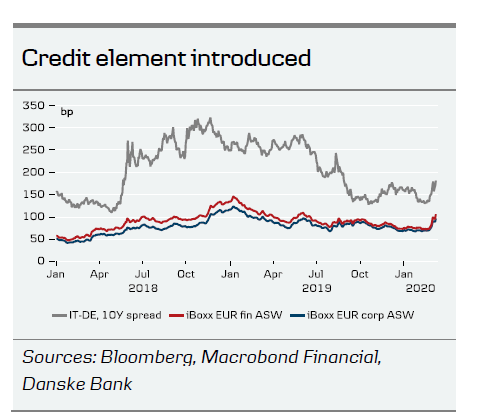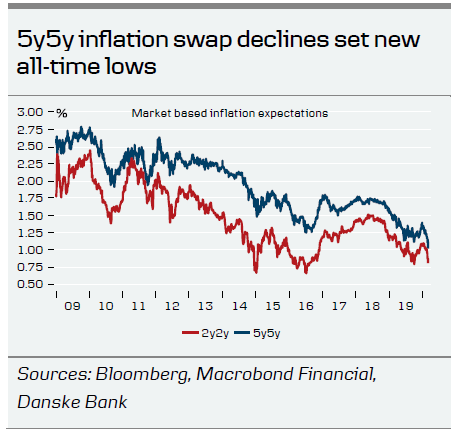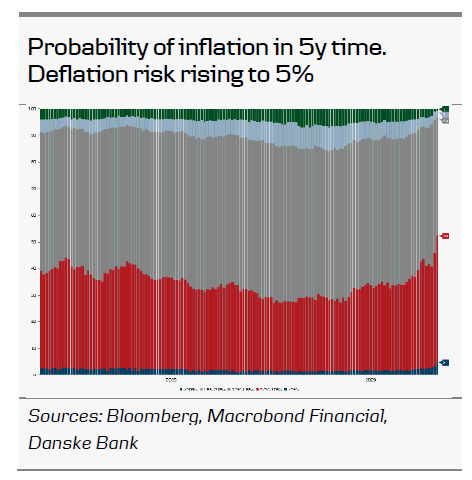- The COVID-19 situation evolves on a daily basis. With the lockdown in Italy at the weekend, we have now observed a credit element added to markets, and particularly the Italian bond markets, which we believe the ECB needs to address.
- To take this into account, along with increasing deflation fears, we are refining our call, with ECB QE no longer just being tweaked towards private programmes, but also QE volume being increased to EUR30-40bn/month in the coming months. We stick to the call of no rate cut, but this is becoming a close call. Ultimately, should the ECB decide to cut rates, we expect an increase in the tiering multiplier.
Addressing the credit element
With the lockdown in Italy, financial market participants have sold BTPs quite markedly today. 10Y Bund –BTP spread is 45bp wider on the day to stand at 224bp. We believe that the ECB needs to address the credit element that has been introduced in Italy and other markets and therefore expect a temporary increase in the QE volume to EUR30-40bn/ month for at least six months with a continuing evaluation regarding the volume. The PSPP’s main modus operandi has been compression of the term-premium, but that is not the goal of this exercise – it is rather that the ECB should make sure that markets will not trade a credit event in Italy in the midst of the COVID-19 outbreak. As the ECB cannot address the BTP situation as a standalone issue without conditionality and then activate OMT, we expect the ECB to scale up the overall APP volume and allow some flexibility in the implementation towards both Italy and also the private programmes. As Draghi used to say, QE deviations are ‘temporary and unavoidable’. Currently, the ECB has ‘overbought’ countries such as Italy, Spain, France and Germany compared to the stock capital key. The ECB may also increase the ISIN limits, but with the ‘small’ scale up to EUR30-40bn / month, it may not be needed at this stage and the ECB will call for flexible implementation.
We believe that the ECB wants to step up its QE even before the tasked committees come up with their conclusions. The size of the scale up is uncertain, but we think they will come in the EUR30-40bn range on Thursday. Importantly, Lagarde will reaffirm that the guiding principle of the stock capital key is the most important, and not the monthly flow. That said, with Lagarde seeking the broad consensus of the governing council, there is a risk of a less aggressive package and only a compromise that may be underwhelming.
QE usually to address deflation risk
With the collapse of the oil prices this morning, we have also seen market based inflation expectations dropping. The 5y5y inflation swap declined 6bp to 0.96%, a new record low, and worrying to the ECB is also the fact that the inflation option market is now pricing in a 5% probability of deflation in 5y. This has come higher in the past 10 days from only 2%. When the ECB announced QE in 2015, the deflation risk was 15%.



